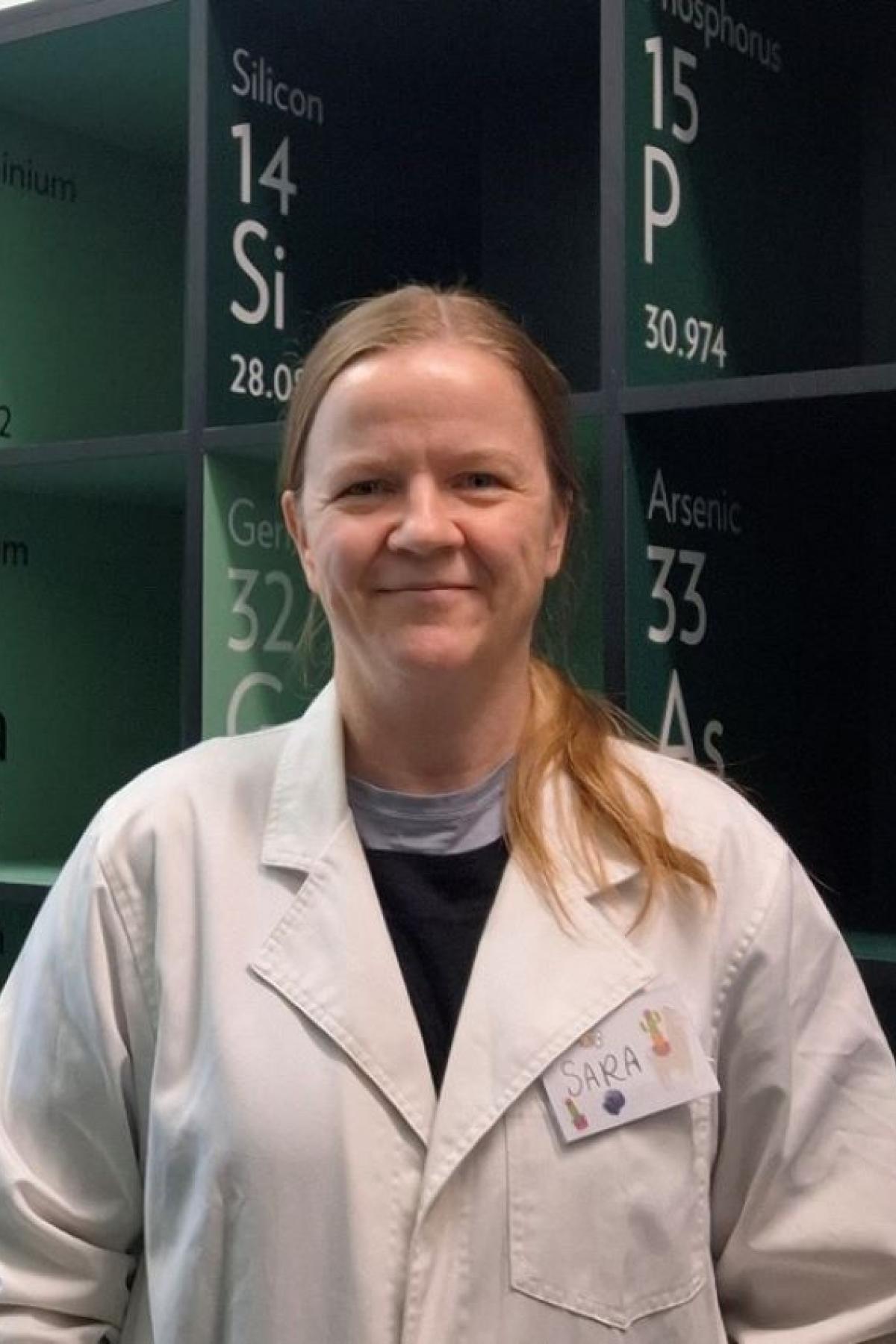This is how I teach
This month we spoke with Dr Sara Krivickas, Associate Lecturer and level 1 Chemistry course coordinator in the School of Physics, Chemistry and Earth Sciences, in the Faculty of Sciences, Engineering and Technology. Sara became a member of the Adelaide Education Academy in 2023 and in the same year was awarded the Executive Dean’s Commendation for Excellence in Teaching (Faculty of SET).

How would you describe your approach to teaching/your teaching philosophy?
While living in Japan at an age of somewhere above 30, I decided to learn to snowboard. My first lesson was a disaster and to make me feel less hopeless the instructor delivered the platitude “snowboarding is hard, some people just can’t do it”. Despite this blow to my ego, I signed-up for lessons with a different instructor and with small corrections to technique and practice I was confidently navigating the beginner runs.
I am reminded of my snowboarding lessons, when first-year students echo “I can’t do chemistry” and “chemistry is hard”. To hear these words from students so early in their learning life can be disheartening. My teaching philosophy has evolved to focus on building student confidence and self-efficacy.
Studying chemistry can be challenging, as it is unique in language and symbols, and can involve visualising interactions between small particles that cannot be observed at a macroscopic level. When encountering a chemistry problem, students must be able to interpret the language and symbols in the question, understand what is being asked, apply the correct theory to develop an answer and then, finally, communicate their answer using appropriate chemical language and symbols. Like my snowboarding lessons, small errors or misconceptions along the way can lead to students failing to demonstrate their full capabilities and damaging their confidence. Consequently, my teaching has evolved away from one-direction lectures towards two-way activities and discussions where misconceptions can be corrected in real-time instead of retrospectively.
What do you like most about teaching in your discipline?
Chemistry is often called the central science as it has connections to many other areas of science and is important in solving global challenges, such as detection and treatment of diseases, renewable energies, and remediation of environmental pollutants. Unfortunately, this label can diminish the importance of chemistry in the eyes of a student, and they may view chemistry as a forced requirement and not a science or career of its own standing.
I am often secretly delighted when students enquire about changing pathways to a major in chemistry, as this indicates our courses have inspired them to see the value of chemistry study and research.Dr Sara Krivickas
How does your teaching help prepare students for their future?
The language and symbols used in chemistry often lead students to adopt memorization-based learning and focusing on “the correct answer” rather than the process. We prepare our first-year students for their future studies by developing their critical thinking skills through regular low-stakes tasks, such as formative lecture activities, and workshop and practical preparation tasks. These tasks encourage students to think independently, apply feedback and seek help before higher-stake tasks, such as practical reports, topic review assignments and exams.
What is your favourite way to use technology to enhance learning?
While it can be stressful trialling new technology in a lecture to 100+ first-year students, I do enjoy experimenting with different tools for teaching and have recently used Menti in a first-year module. My heart beat a little faster when mid-activity I discovered the live chat was accidently enabled; thankfully the comments and emojis were positive with no inappropriate language (phew!). One of my favourite question types in Menti is for students to rank their confidence about the learning objectives. This provides insight into how students feel about the content and helps to build belonging as students that see their classmates are struggling with similar concepts.
I think it is important to acknowledge that integrating technology into some areas, like chemistry, is not an easy task and the current tools available may detract from the learning objective or skill being taught. In a smaller 2024 level I summer chemistry course, I switched an online MCQ quiz covering organic chemistry structures and mechanisms, to a hand-written online submission. While this added to the marking workload, correctly representing a chemical structure and mechanism is a skill that needs practice and provides extra challenges above selecting an image in an MCQ quiz. Requiring the work to be completed by hand had the added benefit of encouraging students to seek help from their workshop leaders to refine their answers. All I need now is an easy-to-use AI tool to complete the marking for me!
When reflecting on “how I teach”, I felt I needed to acknowledge my father and retired high school chemistry teacher, Kestas Krivickas, who sadly passed away earlier this year. His kindness and patience while teaching is something I strive daily to emulate.
